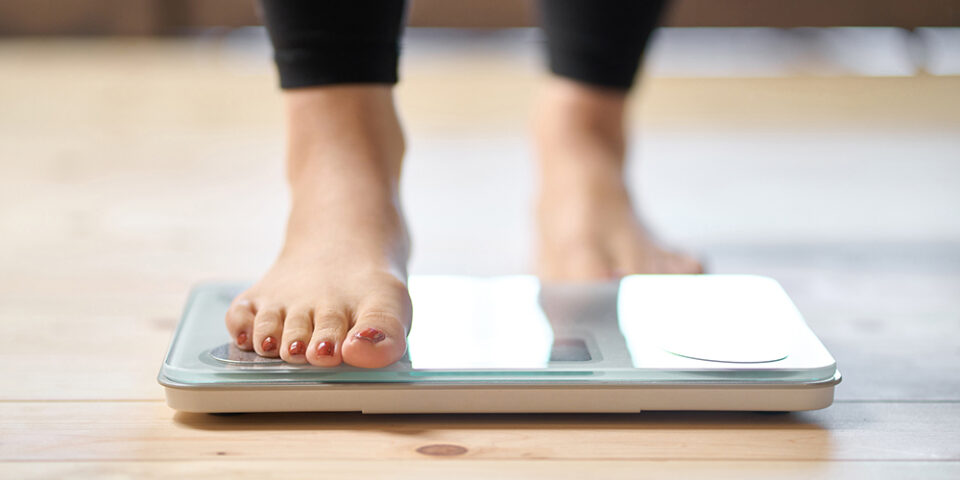Can weight changes affect your menstrual cycle?
Seeing the scale go up and down from day to day is something we all experience. For women, you might also notice changes to your period when this happens. Maybe your period starts becoming more regular, skips a month here and there or maybe it doesn’t come at all. Erin Wisbey-Martin, MD, explained why weight changes affect your menstrual cycle and when it’s time to reach out to a doctor.
Why do weight changes affect your menstrual cycle?
“Your weight impacts your hormonal status, which then impacts your periods,” Dr. Wisbey-Martin said.
Changes in certain hormone levels can prevent your body from ovulating, and if you don’t ovulate, you don’t have a period. Both weight gain and weight loss can impact these levels.
Weight gain
“The primary relation we see with weight gain is polycystic ovarian syndrome, or PCOS,” Dr. Wisbey-Martin said. “Women with PCOS tend to be on the heavier side and that predisposes them to insulin resistance as well as some other hormonal imbalances that then make them ovulate irregularly or not at all.”
PCOS is a significant issue that can affect everyone from young teenage girls to women in their 40s.
“The most effective treatment for PCOS is to work on moving your weight back into the healthy range for your body type,” Dr. Wisbey-Martin said. “That often will either cure or improve your disease enough so that your periods will become more regular. Maybe not perfect but improved, and it can make it easier for you to get pregnant. You may still have difficulties, but we can address that in other ways.”
Weight loss
Women who are significantly underweight also can have difficulties with their periods.
“We see this a lot in elite athletes,” Dr. Wisbey-Martin said. “They can miss their periods for months at a time.”
Missed periods are also common in women who are struggling with anorexia or bulimia.
“In patients who are underweight, we do worry about what their low weight is doing to their bodies,” Dr. Wisbey-Martin said. “Women need fat because fat is an important part of our hormonal makeup. When we remove the fat, it can change our hormonal makeup quite a bit and impede our periods.”
The main takeaway?
If your periods are irregular, tell your doctor.
“A lot of times, it’s not a big deal,” Dr. Wisbey-Martin said. “Often, it’s something we can treat with medications. It won’t significantly impact your life, and it can be looked at again when you’re ready to get pregnant.”
Find the care you need, close to home
Our primary care physicians provide well visits and everyday care when you need it with compassion and expertise.
Find Primary Care Near You

